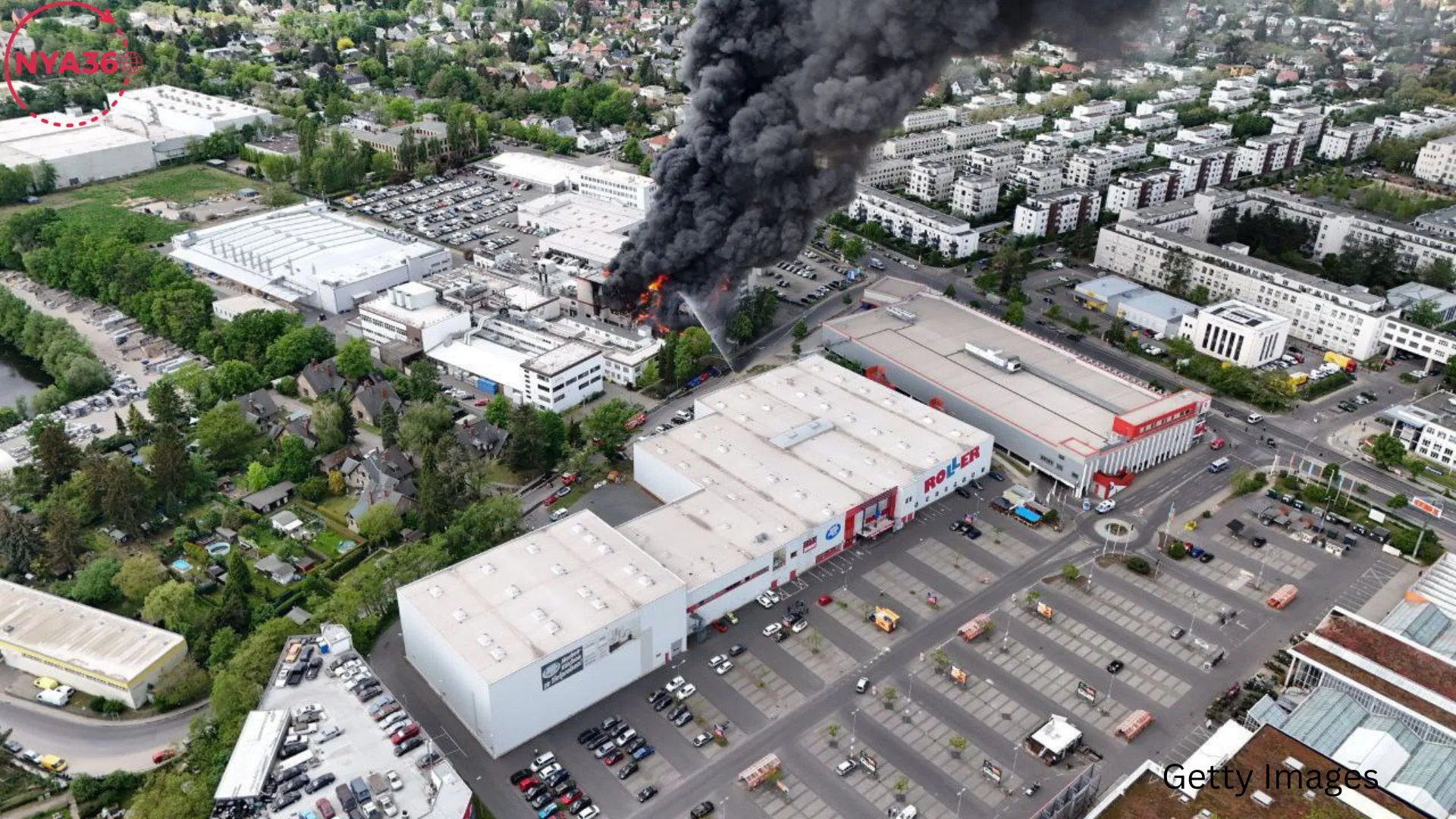A sequence of fires that have occurred at weapons factories located in Berlin has generated concern and prompted inquiries regarding safety protocols, environmental repercussions, and possible malicious activities. Parts of the city were enveloped in a toxic cloud that originated from the Diehl Metal Applications factory, where air defense systems for NATO and Ukraine are manufactured. This was the scene of the most recent incident.
The fire at Diehl Metal Applications is the most recent in a series of comparable occurrences that have transpired in Berlin over the past few months. The recurring trend of fires at weapons manufacturing facilities is extremely alarming and necessitates an exhaustive inquiry to ascertain the underlying factors and mitigate the likelihood of future incidents.
The Diehl Metal Applications factory, an integral component of the Iris-T air defense systems supplied to numerous nations, including Ukraine, is a Diehl Group subsidiary. The fire’s devastation not only presents immediate hazards to the adjacent vicinity but also gives rise to more extensive inquiries concerning the stability and security of weapons production facilities situated in densely populated urban regions.

A toxic cloud forming over Berlin serves as a poignant illustration of the environmental and health repercussions that may result from industrial catastrophes. The notification of members of the public to close their windows and refrain from utilizing ventilation systems via emergency messages emphasizes the gravity of the situation and the critical nature of prompt and efficient measures to prevent further damage.
Although accidents are a possibility in any industrial environment, the frequency and severity of fires at Berlin’s weaponry factories indicate a more serious issue that cannot be disregarded. In light of the potential motivations for sabotage or targeted attacks and the high stakes involved in the production of military equipment, it becomes progressively more difficult to believe the notion that these incidents are mere coincidences.
The flames’ ramifications transcend immediate safety considerations and encompass more extensive geopolitical dynamics as well as security implications. The provision of Iris-T air defense systems manufactured at Diehl Metal Applications to Ukraine introduces an additional level of intricacy to the circumstance, prompting inquiries into potential motivations and objectives underlying the assaults.
To guarantee the safety of residents, employees, and the environment, a greater emphasis must be placed on the supervision and regulation of weapons manufacturing facilities in light of the recurrence of these incidents. It is imperative to establish and enforce sufficient safety protocols, emergency response measures, and risk mitigation strategies in order to avert subsequent catastrophes.

The fires that broke out at weapons facilities in Berlin have far-reaching consequences that extend beyond immediate environmental health and public safety concerns. These repercussions also affect national security and international relations. Possible ramifications of production disruptions at facilities that provide essential military equipment include the potential disruption of defense capabilities and geopolitical dynamics.
Maintaining transparency and accountability are imperative for authorities during the ongoing investigations into the origins of these fires. This entails delivering timely updates and attending to public concerns. It is imperative to prioritize the safety and security of communities and implement preventative measures against the recurrence of such incidents.
In summary, the fires that have broken out at armaments factories in Berlin constitute a significant and complex dilemma that necessitates a holistic reaction from governmental bodies, industry participants, and the general populace. The recurring nature of these incidents emphasizes the necessity for heightened safety protocols, regulatory supervision, and constant vigilance in order to safeguard against potential dangers and guarantee the welfare of all individuals.
Follow us on social media: Instagram, Threads & Twitter X @nya360_ YouTube & Facebook @nya360.





